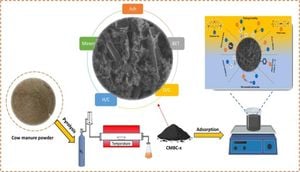After years of discussions and international pressure, the Wereldmuseum in Leiden, Netherlands, has returned 119 stolen artifacts, including bronze sculptures, to Nigeria. These significant pieces, once adorning the royal palace of the Benin Kingdom, were looted by British forces during the violent clash of 1897, commonly known as the Benin Expedition. This historic moment, marked by the signing of the agreement last Wednesday, stands as the first formal act of returning stolen art from the Netherlands to Nigeria.
While the artifacts were not taken by the Dutch, the actions by British colonizers have long drawn criticism and calls for restitution. The return of these bronzes is seen as pivotal, as it reflects growing acknowledgment of historical injustices perpetrated during the colonial era. The Wereldmuseum, known for its efforts to return over 1,000 pieces of looted art globally, still retains over half a million items acquired through various means, raising questions about the fate of other artifacts.
Olugbule Holloway, the head of the Nigerian delegation, expressed deep gratitude, stating, "We as a nation now enjoy the respect and appreciation we deserve." This emphasizes the broader cultural and historical significance attached to the artifacts, which are more than just objects; they embody the heritage and identity of the Benin people.
Igor Bruin, the Minister of Culture for the Netherlands, underscored the importance of this return, asserting, "What we are doing today is correcting injustice and achieving justice." His comments mark the Dutch government’s commitment to reconciling with its colonial past and easing tensions surrounding the ownership of cultural artifacts.
Maria van Bommel, director of the museum, highlighted ethical dimensions tied to the acquisition of cultural heritage. "Nothing stolen should be bought, and this is not allowed here in the Netherlands," she stated, signaling the growing attitude among European institutions to critically reassess collections established during colonial times.
This move to return the artifacts is not merely symbolic; it has potential ripple effects across Europe. Nigerian officials hope this moment serves as inspiration for other museums holding African artifacts to initiate similar returns. There is hope for renewed discussions on how institutions can ethically address their collections and recognize the cultural significance of what was taken.
The return of Benin bronzes marks the largest restitution of colonial art since the infamous looting, with Nigeria’s government viewing this step as integral to their aim of restoring cultural dignity and heritage. The artifacts will undoubtedly find their rightful place back home, where they can educate and inspire future generations.
With discussions intensifying around the return of colonial artifacts, stakeholders across Europe are compelled to reflect on their holdings. Museums and governments must face questions about responsibility, historical accountability, and the moral imperatives of returning these items to their countries of origin.
Overall, the return of the bronzes not only addresses past injustices but also paves the way for healthier cultural relationships between Nigeria and the Netherlands. Both nations stand at the threshold of redefining their ties, built not on loss but on respect and mutual appreciation.



